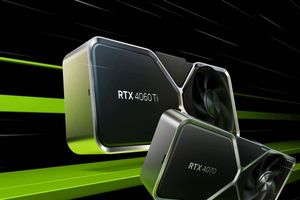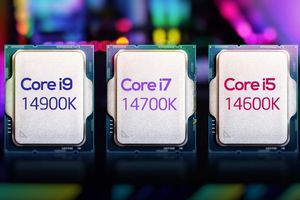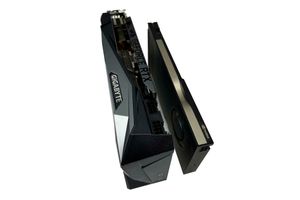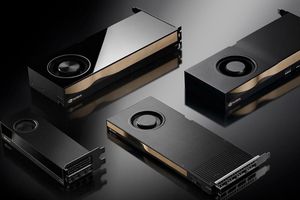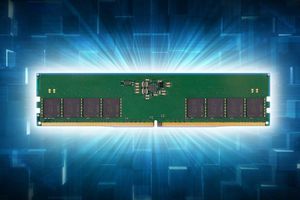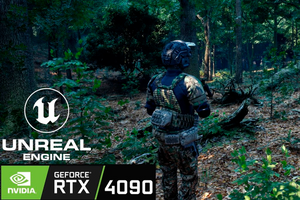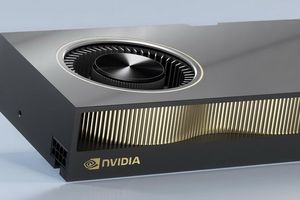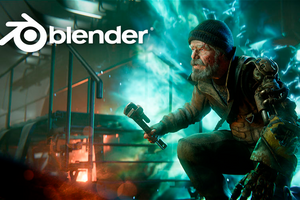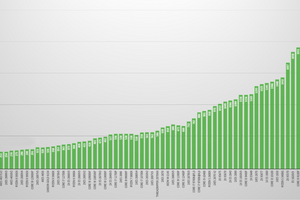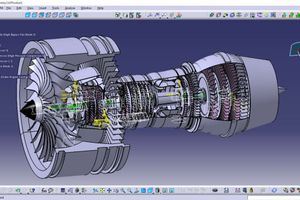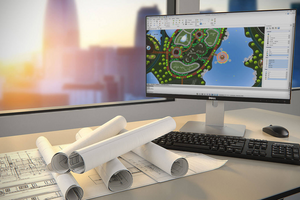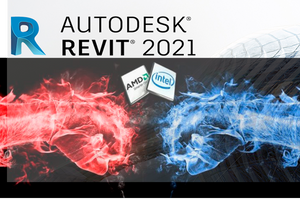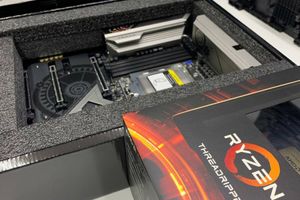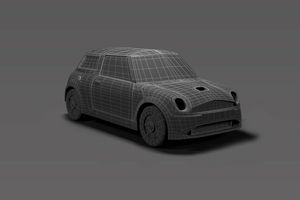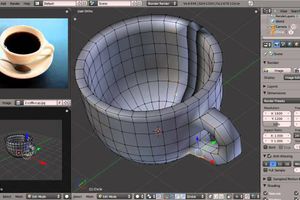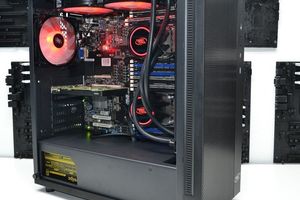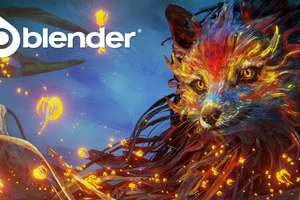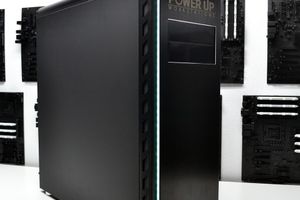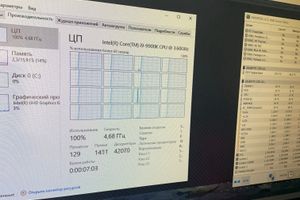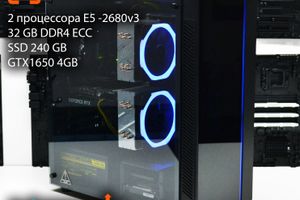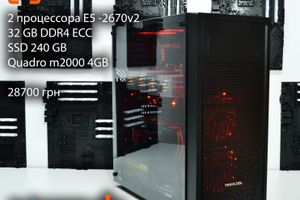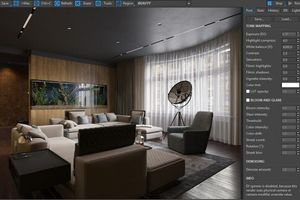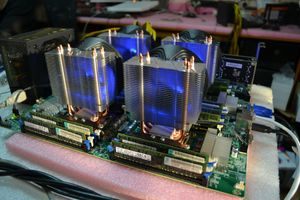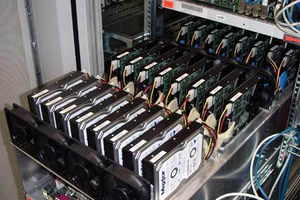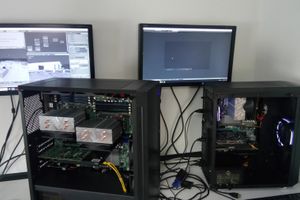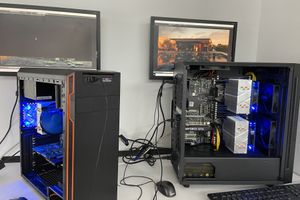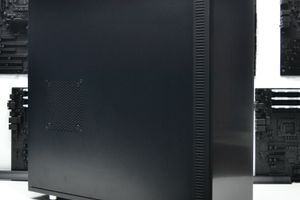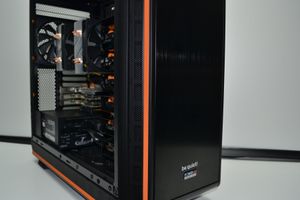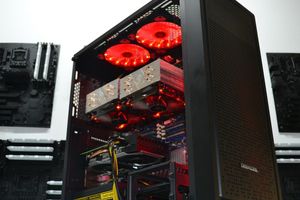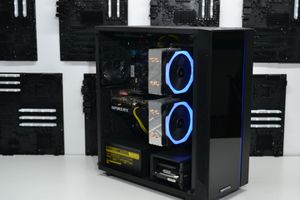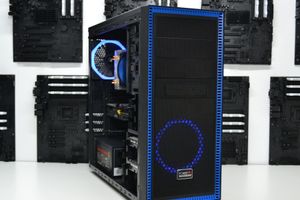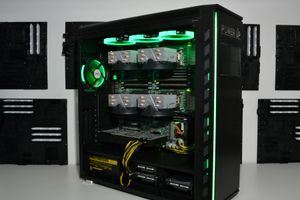TL;DR: AMD Ryzen 7000 series performance in Cinema 4D
The new AMD Ryzen 7000 series processors perform extremely well in Cinema 4D, showing a solid 27-45% performance increase in multi-core mode compared to the previous generation Ryzen 5000 series, and 25% in single-core mode. In the upper range, this means that the Ryzen 9 7950X outperforms the Intel 12900KS by 43% in multi-core mode, and even in single-core mode. The 7900X processor outperforms the Intel 12900K by 27% in multi-core mode and has equal performance in single-core mode. This makes Ryzen a reliable choice.
Lower in the AMD stack, the Ryzen 7 7700X and Ryzen 5 7600X are slightly behind the Intel Core i7 12700K and i5 12600K by 7% and 16%, respectively. This gives Intel an advantage at the lower end.
Introduction
Earlier this month, AMD announced the new Ryzen 7000 series desktop processors along with the LGA-based AM5 platform. These processors are positioned to offer significantly better performance for content creation applications, thanks in part to the “Zen 4” architecture, but also to support new technologies such as DDR5 memory.
Cinema 4D users often need a combination of single-core and multi-core performance depending on the task at hand. Traditionally, modeling, animation, and certain physical simulations require few fast cores. Conversely, rendering, fluid simulations, and some plug-ins perform better on more cores. However, Maxon is pushing C4D users to render on the Redshift GPU instead of the native CPU rendering, and recent updates to Cinema 4D have also moved many physics simulations to the GPU.
In this article, we'll be using Maxon's Cinebench R23 to explore the performance of the new AMD Ryzen 7000 processors and compare them to Intel's 12th Generation processors as well as the previous generation Ryzen 5000 series. While we include most of the mainstream models from each of these lines, please note that we are leaving out the AMD Ryzen 7 5800X3D, which features AMD's 3D V-Cache technology. We've reviewed this model in previous articles and found it to be either on par or slower than the regular Ryzen 7 5800X for content creation.
If you want to know more about the new AMD Ryzen 7000 series processors and what makes them different from the previous generation, we recommend that you read our main article “AMD Ryzen 7000 Series Processors for Content Creation”. This article contains more detailed information about the processor's characteristics, test results for a number of other applications, including Lightroom Classic, Premiere Pro, After Effects, and Unreal Engine, as well as all the details of the hardware and software setup used in our testing.
AMD Ryzen 7000 vs. 12th Gen Intel Core for Cinema 4D
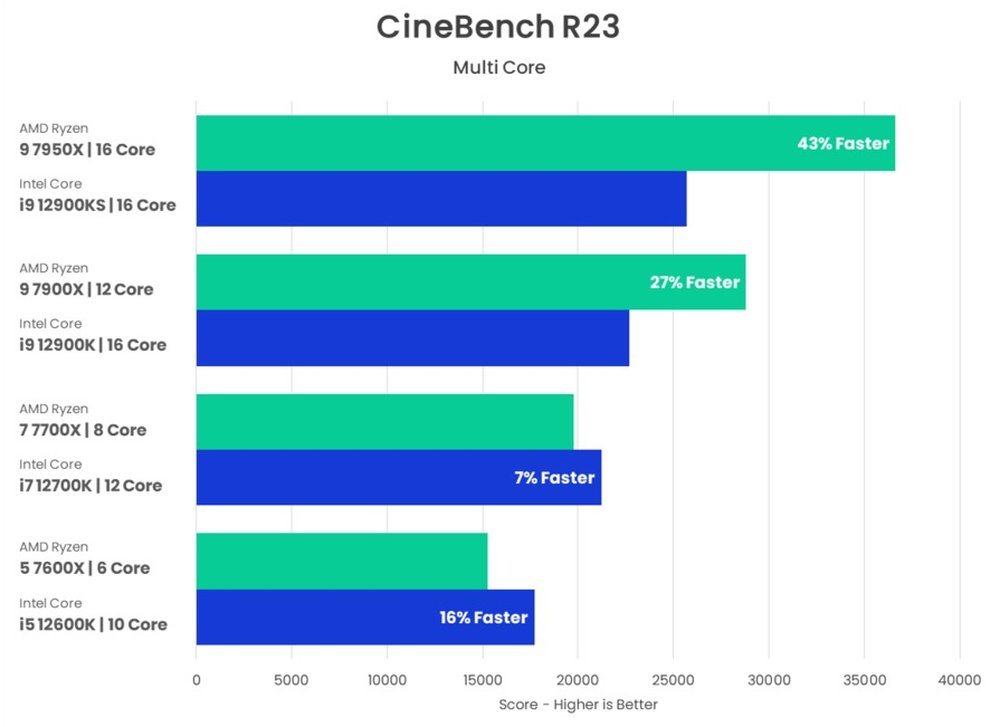
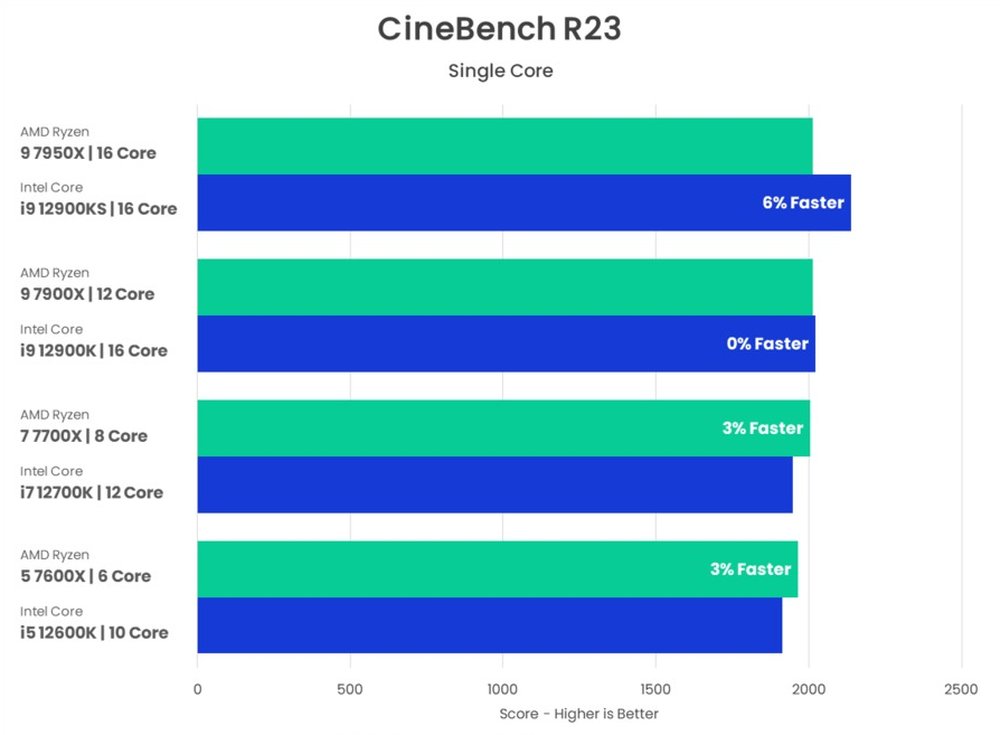
At the beginning of our analysis, we wanted to see how the new Ryzen 7000 series compares to the 12th generation Intel Core processors. The MSRPs for Intel and AMD are not exactly the same, but in most cases, the comparisons we make in the chart above are for processors that have MSRPs within $40 (about 1500-1600 UAH) of each other. We have a full breakdown of the MSRP of each of these processors in our main article “AMD Ryzen 7000 Series Processors: Content Creation Overview” if you want to dive into the details.
The top-end Ryzen 7950X and 7900X processors have a significant advantage (43% and 27% respectively) over their Intel counterparts. Keep in mind that although the Intel 12900KS and AMD 7950X have the same number of processor cores, they are built differently. Intel uses a hybrid architecture where 8 of the performance cores are hyper-threaded and the remaining 8 efficient cores are not. This means that although it has 16 cores, it only has 24 threads, while the Ryzen 7950X has 32. This difference accounts for most of the 43% advantage that the 7950X has.
The Ryzen 7900X has 12 cores and 24 threads, the same number of threads as the Intel 12900K, but it is 27% faster. This highlights the differences in processor architecture as well as the overall IPC and clock speed improvements in the new Ryzen processors.
Moving to the lower end, the story changes and Intel takes the lead. This says a lot about the performance of Intel components and the amazing value they provide. The new Ryzen 7700X is 7% slower than the Intel 12700K, and the 7600K is 16% slower than the 12600K. Intel really has a great offering at the lower end.
Looking at single-core performance, which is responsible for tasks such as modeling and animation, we see that all processors are in a virtual dead heat. The 12900KS has a slight advantage due to its higher clock speed. The Ryzen 7700X and 76000X are on average a couple of percent higher than the corresponding Intel processors, but this may be within the margin of error. If you are looking for performance for modeling and are going to use the GPU for rendering, then either of these processors will be a great solution.
AMD Ryzen 7000 vs AMD Ryzen 5000 for Cinema 4D
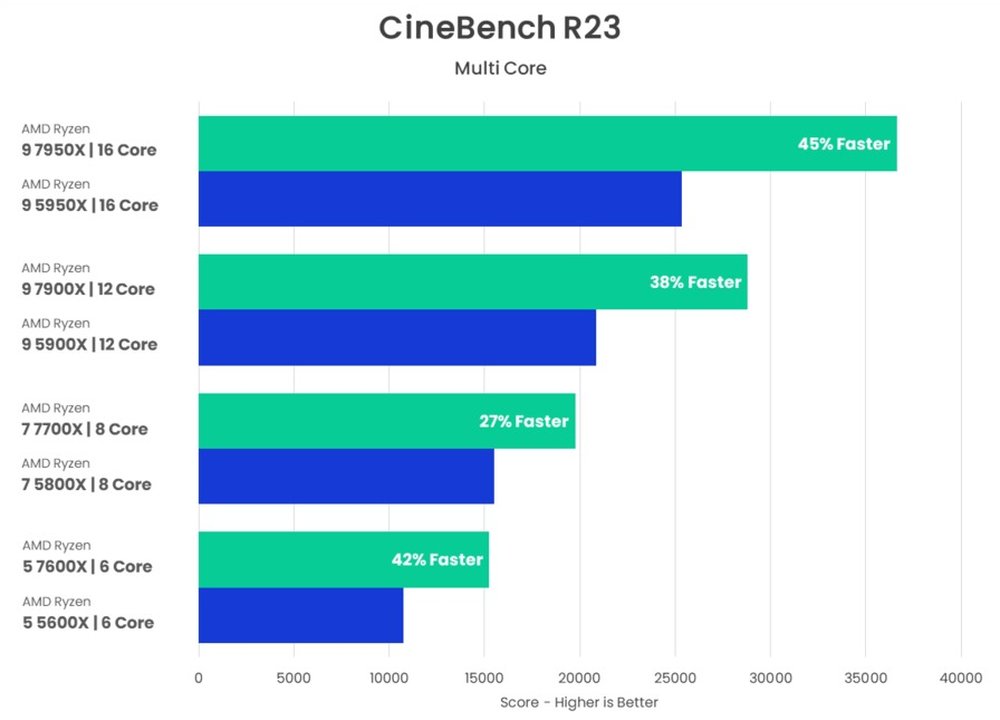
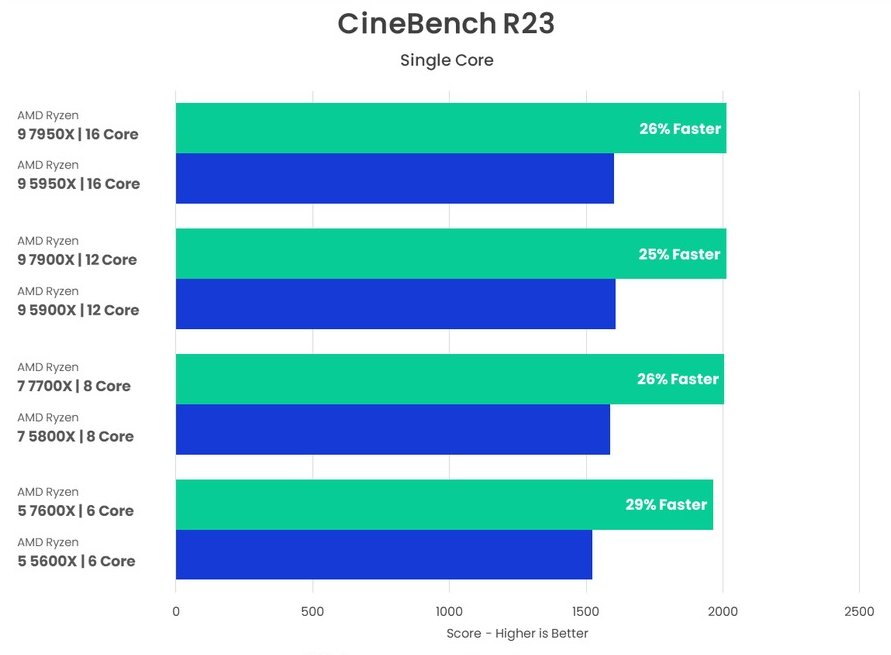
In the previous section, we looked at how the new Ryzen 7000 series performs compared to current Intel processors, but we also need to look at how they perform compared to the previous generation of the Ryzen 5000 series. As we can see from the chart, there is an improvement of 30-40% in all directions. The number of cores has not changed, so the increase we see is due to the increase in IPC, clock speed, DDR5, and other changes in the core.
As for single-core processors, we see a little over 25% increase on average across all processors. This is a really big generational upgrade, but it only puts them on par with Intel's 12th generation processors. Not only that, but Intel is planning to debut new processors soon that may well put them back in the lead.
How well do AMD Ryzen 7000 series processors perform in Cinema 4D?
The new AMD Ryzen 7000 series processors show significant improvements in both single-core and multi-core performance. Multi-core performance has increased by 30-40% and single-core performance by 25% across all processors. AMD's Ryzen 5000 series processors already had an advantage in rendering performance over Intel, and this processor has further increased it. At the top end, the Ryzen 7950X is 43% faster than the Intel 12900KS.
At the lower end, Intel manages to keep the lead, although the gap is much smaller. Only 7% for 12700K and 16% for 12600K. None of these processors is a processor you would buy specifically for CPU rendering, but it is useful to know where they are if you want to get an inexpensive 3d modeling/animation system to use with GPU rendering software like Redshift.
It's worth noting, however, that Intel is expected to launch its new 13th Generation Core processors sometime in late 2022, with some sites like Tom's Hardware suggesting they could be available as early as October. We won't know how these upcoming Intel processors will perform until they are released, but given the short timeframe we are likely to be dealing with, it may be worth holding off on buying a Ryzen 7000 (or 12th Gen Intel Core) if you have the option. While AMD is clearly leading the way in Cinema 4D performance on its higher-end processors, it may be worth waiting to see if Intel can make a comeback with its 13th-generation processors.
Keep in mind that the test results in this article are for Cinema 4D only and that performance will vary greatly from application to application.
